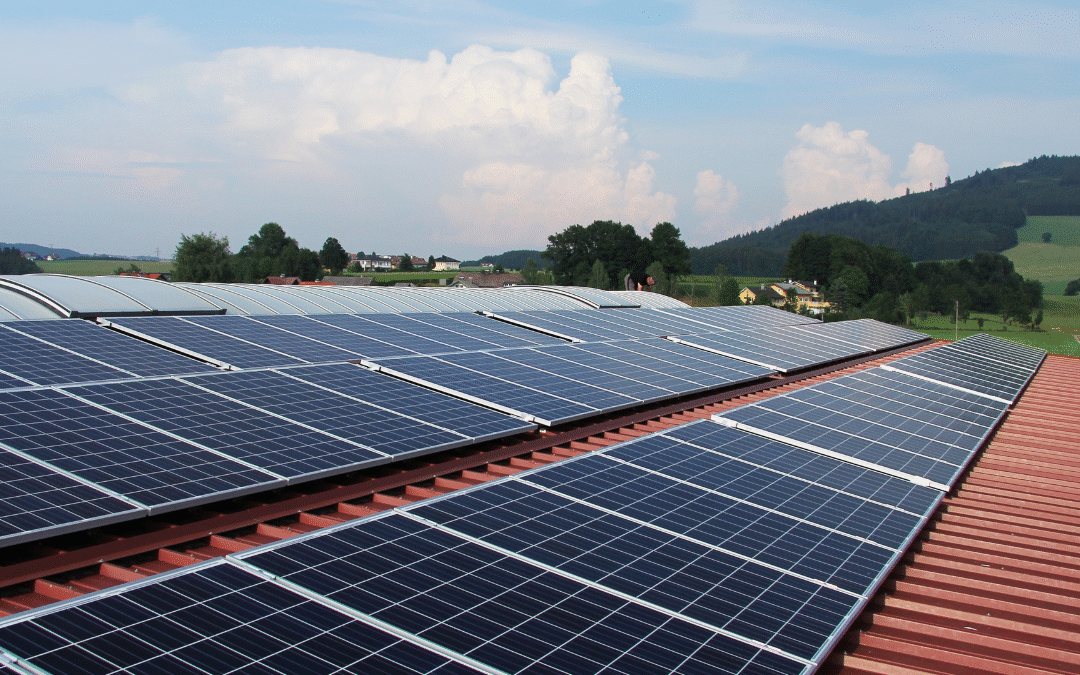Investing in rooftop solar is a wise choice that benefits both the environment and your wallet.
However, it’s not for everyone. While the benefits are plentiful, going solar is an important choice that requires careful research and planning.
In this article, we’ll break down the pros and cons of owning a solar system so you can make the most informed decision for your household or business.
What are the Benefits of Rooftop Solar?
1. It protects you from rising energy prices
Electricity prices are soaring currently. But you can shield yourself from their impact by going solar.
Setting up your rooftop solar system gives you complete ownership over your electricity production. That way with your system, you lock in energy prices at a fixed rate which helps you save money over the long term.
This in turn makes you less vulnerable to highly unpredictable energy prices.
2. It will boost your home’s value
If you ever decide to move or sell your house in the future, you’ll be glad you installed solar panels.
A 2025 study by Solar Reviews found that on average, across the US, homes with a solar system sell for 6.9% more than homes with no solar system (meaning they list for around $25,000 more)!
This is because solar panels improve your home’s energy efficiency and enhance its aesthetic appeal. Thanks to this, its value goes up significantly making it a lot more attractive to potential buyers!
3. It helps reduce your carbon footprint
Going solar is a great way for you to live sustainably and reduce your carbon footprint.
By adopting this clean energy generation method, you reduce your reliance on non-renewable, fossil-fuel based grid energy that emits harmful greenhouse gases like carbon dioxide and methane.
Eventually, as more people learn of the impact of solar and decide to join, this will create a multiplier effect that will lead to cleaner air and more sustained ecosystems in the environment.
4. It can serve as a passive income stream
Yep! Not only does rooftop solar help you save on your bills, it also helps you earn an income.
Thanks to solar renewable energy certificates (or SRECs), homeowners can get paid for selling extra energy produced by their systems to utilities. This financial incentive is a win-win for everyone involved as it helps utilities stay compliant with state-mandated renewable portfolio standards (that require them to source a portion of their energy from clean sources), and it helps homeowners make some extra cash from their solar systems.
Similarly, by sending their extra solar energy to the grid through net metering, homeowners are compensated through credits to help reduce their future energy bills (although some states do offer monetary compensation).
What are the Disadvantages of Rooftop Solar?
1. It has a high initial investment
The reality is that investing in a rooftop solar system isn’t cheap. Indeed, the estimated cost to go solar in 2024 was around $25,000 (this includes the 30% Federal ITC).
Between the racking, panels, inverters, and cost of labor, you will need a decent amount of cash to get your system up and running. However, there are many solar financing options that allow you to take out a loan on your equipment and install costs. These can offer you a better cost per month than your current utility bill.
And the upside to this? The long-term savings over the life of your system will make up for these early costs and so much more. Moreover, the financial incentives offered by the federal and some state governments will help to make the project even more affordable while these programs last.
2. Your property tax may increase
So yes, going solar will increase your home’s value but there’s one caveat: your property tax may also increase as a result.
This depends on your home’s estimated value, your local tax rate and the potential impact of relevant local policies.
The good news is different states currently have property tax exemption laws for homes with rooftop solar. So if you live in Massachusetts, Maryland or Arizona for example,you don’t have to worry about property tax increases from your solar system.
Always check with your state government to see if it offers an exemption and how you can qualify for it.
3. Your system doesn’t work at night
Your solar system needs maximum access to sunlight to function properly.
However at night, there is no sunlight for your system to draw energy from which is why you still rely on electricity from the grid for your nighttime use.
One way to go around this is by investing in storage batteries for your system. These store the excess solar energy produced during peak sunlight hours and release it at night when you need it. This also helps reduce your grid dependence even more.
A storage battery system will bump up your solar costs but incentives like the Illinois Smart Inverter Rebate can help you recoup some of these costs.
4. Your roof condition matters A LOT
Your roof condition is a crucial factor to pay attention to when deciding whether or not you can go solar.
A roof that is older than 10 years, prone to cracks and has very little usable space is not a good candidate for a solar system
That’s why you need to work with a professional to make sure that your roof is made of adequate material that can handle solar panels. Asphalt, metal and tar & gravel are good options.
However if your roof doesn’t fit the bill or you don’t own your home, subscribing to a community solar farm is the best way for you to access solar energy and incur long term savings.
It’s important to have a comprehensive picture of the pros and cons of rooftop solar before deciding if it’s the right choice for you. But if you are now ready to get set up, reach out to us and we will assist you every step of the way!

